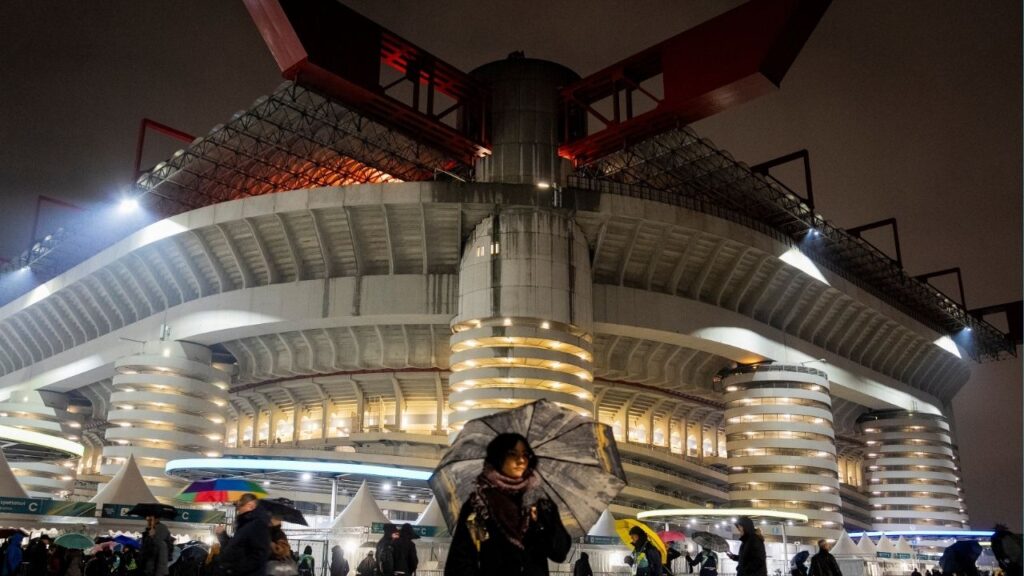Share
WASHINGTON — Both nature and humans share blame for California’s devastating wildfires, but forest management did not play a major role, despite President Donald Trump’s claims, fire scientists say.
Nature provides the dangerous winds that have whipped the fires, and human-caused climate change over the long haul is killing and drying the shrubs and trees that provide the fuel, experts say.
“Natural factors and human-caused global warming effects fatally collude” in these fires, said wildfire expert Kristen Thornicke of the Potsdam Institute for Climate Impact Research in Germany.
While there are multiple reasons behind the fires’ severity, “forest management wasn’t one of them,” University of Utah fire scientist Philip Dennison said.
Trump tweeted on Saturday: “There is no reason for these massive, deadly and costly forest fires in California except that forest management is so poor. Billions of dollars are given each year, with so many lives lost, all because of gross mismanagement of the forests.”
There is no reason for these massive, deadly and costly forest fires in California except that forest management is so poor. Billions of dollars are given each year, with so many lives lost, all because of gross mismanagement of the forests. Remedy now, or no more Fed payments!
— Donald J. Trump (@realDonaldTrump) November 10, 2018
Wildfires Have Become More Devastating
One reason that scientists know that management isn’t to blame is that some areas now burning had fires in 2005 and 2008, so they aren’t “fuel-choked closed-canopy forests,” Dennison said.
In those earlier fires, the northern California town of Paradise was threatened but escaped major damage, he said. In the current blazes, it was virtually destroyed.
The other major fire, in southern California, burned through shrub land, not forest, Dennison said.
The dean of the University of Michigan’s environmental school, Jonathan Overpeck, said Western fires are getting bigger and more severe. He said it “is much less due to bad management and is instead the result of our baking of our forests, woodlands and grasslands with ever-worsening climate change.”
Wildfires have become more devastating because of the extreme weather swings from global warming, fire scientists said. The average number of U.S. acres burned by wildfires has doubled over the level from 30 years ago.
As of Monday, more than 13,240 square miles have burned. That’s more than a third higher than the 10-year average.
From 1983 to 1999, the United States didn’t reach 10,000 square miles burned annually. Since then, 11 of 19 years have had more than 10,000 square miles burned, including this year. In 2017, 2015 and 2006, more than 15,000 square miles burned.
The Biggest Factor Was Wind
The two fires now burning “aren’t that far out of line with the fires we’ve seen in these areas in recent decades,” Dennison said.
“The biggest factor was wind,” Dennison said in an email. “With wind speeds as high as they were, there was nothing firefighters could do to stop the advance of the fires.”
These winds, called Santa Ana winds, and the unique geography of high mountains and deep valleys act like chimneys, fortifying the fires, Thornicke said.
Southern California had fires similar to the Woolsey fire in 1982, when winds were 60 mph, but “the difference between 1982 and today is a much higher population in these areas. Many more people were threatened and had to evacuated,” Dennison said.
California also has been in drought for all but a few years of the 21st century and is now experiencing its longest drought, which began on Dec. 27, 2011, and has lasted 358 weeks, according to the U.S. Drought Monitor. Nearly two-thirds of the state is abnormally dry.
The first nine months of the year have been fourth-warmest on record for California, and this past summer was the second-hottest on record in the state.
Because of that, there are 129 million dead trees, which provide fuel for fires, Thornicke said.
It’s More Than Trees
And it’s more than trees. The drought also killed many shrubs.
“Climate change has been implicated in the severity of the drought,” Dennison said.
University of Alberta fire scientist Mike Flanigan earlier this year told The Associated Press that the hotter and drier the weather, the easier it is for fires to start, spread and burn more intensely.
It’s simple, he said: “The warmer it is, the more fire we see.”
For every 1.8 degrees Fahrenheit that the air warms, it needs 15 percent more rain to make up for the drying of the fuel, Flannigan said.
Federal fire and weather data show the years with the most acres burned were generally a degree warmer than average.
“Everyone who has gardened knows that you must water more on hotter days,” Overpeck said. “But, thanks in part to climate change, California isn’t getting enough snow and rain to compensate for the unrelenting warming caused by climate change. The result is a worsening wildfire problem.
Categories

Kern County Authorities Arrest Three in Armed Robbery Investigation
















